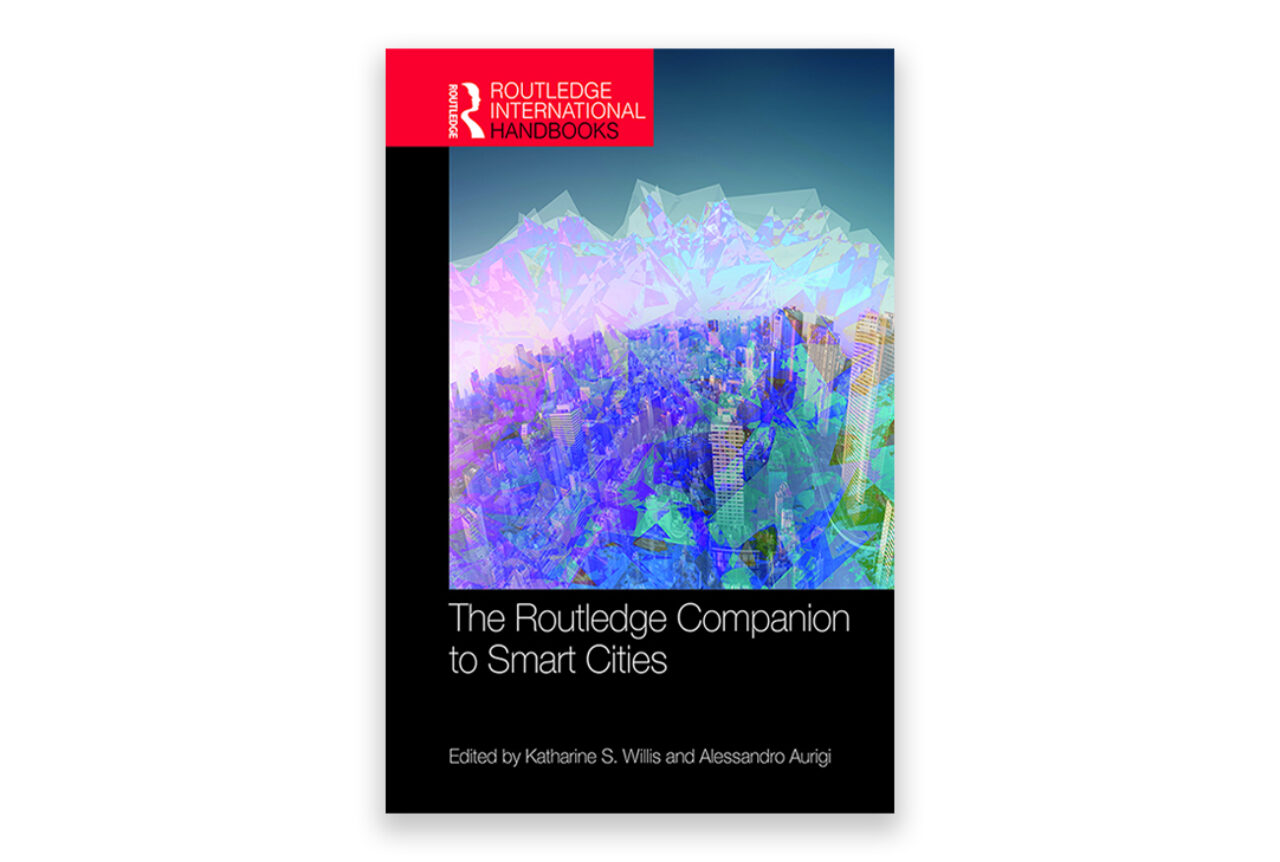What does it mean for a city to be ‘smart’?
With The Routledge Companion to Smart Cities Alessandro Aurigi and Katharine Willis have collected a critical and cross-disciplinary overview of smart cities that explores the topic from a range of theoretical and empirical viewpoints.

Co-creating sociable smart city futures
Ingrid Mulder and Justien Marseille contributed to Alessandro Aurigi and Katharine Willis’ book project that draws on a broad range of different methodological tools and approaches that are used and applied to design, study and analyse smart cities. Selected chapters address methods from data driven tools from the field of computer science to the more socially constructed, participatory approaches from the social sciences. Each chapter includes clearly described examples or case studies that demonstrate how the method is used in a specific context and what outcomes can be expected. The chapter written by Ingrid Mulder and Justien Marseille is entitled ‘Co-creating sociable smart city futures’.
Abstract
Even though, living labs have always referred to alternative futures, this chapter explores how capacity for future thinking can be enhanced in living lab practices. The aim is to advance current smart city visions through establishing bottom-up participatory innovation paradigms. We introduce Citylab Rotterdam, as a platform for participation and co-creation, where students, researchers, and teachers, co-create with local entrepreneurs, civil agents, and citizens, to rethink the future of Rotterdam. In this way, we take stock of the accompanying living labbing approach, which is rooted in the local social infrastructure of Rotterdam. Through deliberate training, insight-giving, and anticipation capabilities, we aimed participants to become more sensitive to identifying weak signals for significant change. And consequently become smarter citizens with future thinking capability, empowered to contribute to the smart city debate.
The full chapter can be found at this link.
To cite this work please refer to it as follows:
Mulder, I. & Marseille, J. (2020). Co-creating Sociable Smart City Futures (Chapter 19). In: Katherine Willis and Alessandro Aurigi (eds.) The Routledge Companion to Smart Cities. Routledge.
The Routledge Companion to Smart Cities
The Routledge Companion to Smart Cities explores the question of what it means for a city to be ‘smart’, raises some of the tensions emerging in smart city developments and considers the implications for future ways of inhabiting and understanding the urban condition. The volume draws together a critical and cross-disciplinary overview of the emerging topic of smart cities and explores it from a range of theoretical and empirical viewpoints.
This timely book brings together key thinkers and projects from a wide range of fields and perspectives into one volume to provide a valuable resource that would enable the reader to take their own critical position within the topic. To situate the topic of the smart city for the reader and establish key concepts, the volume sets out the various interpretations and aspects of what constitutes and defines smart cities. It investigates and considers the range of factors that shape the characteristics of smart cities and draws together different disciplinary perspectives. The consideration of what shapes the smart city is explored through discussing three broad ‘parts’ – issues of governance, the nature of urban development and how visions are realised – and includes chapters that draw on empirical studies to frame the discussion with an understanding not just of the nature of the smart city but also how it is studied, understood and reflected upon.
Click here for full access to The Routledge Companion to Smart Cities